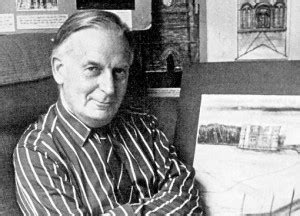A Quote by Joan Halifax
In being with dying, we arrive at a natural crucible of what it means to love and be loved. And we can ask ourselves this: Knowing that death is inevitable, what is most precious today?
Related Quotes
What will you do today, knowing that you are one of the rarest forms of life to ever walk the Earth? How will you carry yourself? What will you do with your hands? Tomorrow you could die, but today you are precious and rare and awake. Grateful and awake, ask what you need to know now. Say what you feel now. Love what you love now.
You can give without loving, but you can never love without giving. The great acts of love are done by those who are habitually performing small acts of kindness. We pardon to the extent that we love. Love is knowing that even when you are alone, you will never be lonely again. & great happiness of life is the conviction that we are loved. Loved for ourselves. & even loved in spite of ourselves.
Knowing means to penetrate through the surface, in order to arrive at the roots, and hence the causes; knowing means to "see" reality in its nakedness. Knowing does not mean to be in the possession of the truth; it means to penetrate the surface and to strive critically and actively in order to approach truth ever more closely.
Once you are afraid of death you are bound to be afraid of life. That`s why I am talking about this Hasidic approach. The whole approach consists of methods, ways and means of how to die - the art of dying is the art of living also. Dying as an ego is being born as a non `ego; dying as a part is being born as a whole; dying as man is a basic step towards being born as a God.
So the experience of death is turned into that of the exchange of functionaries, and anything in the natural relationship to death that is not wholly absorbed into the social one is turned over to hygiene. In being seen as no more than the exit of a living creature from the social combine, death has been domesticated: dying merely confirms the absolute irrelevance of the natural organism in face of the social absolute.
Meditation on inevitable death should be performed daily. Every day when one’s body and mind are at peace, one should meditate upon being ripped apart by arrows, rifles, spears and swords, being carried away by surging waves, being thrown into the midst of a great fire, being struck by lightning, being shaken to death by a great earthquake, falling from thousand-foot cliffs, dying of disease or committing seppuku at the death of one’s master. And every day without fail one should consider himself as dead
When one existentially awakens from within, the relation of birth-and-death is not seen as a sequential change from the former to the latter. Rather, living as it is, is no more than dying, and at the same time there is no living separate from dying. This means that life itself is death and death itself is life. That is, we do not shift sequentially from birth to death, but undergo living-dying in each and every moment.
God’s love sets us free from the need to seek approval. Knowing that we are loved by God, accepted by God, approved by God, and that we are new creations in Christ empowers us to reject self-rejection and embrace a healthy self-love. Being secure in God’s love for us, our love for Him, and our love for ourselves, prepares us to fulfill the second greatest commandment: To love our neighbor as ourselves.
And, at such a time, for a few of us there will always be a tugging at the heart—knowing a precious moment had gone and we not there. We can ask and ask but we can’t have again what once seemed ours for ever—the way things looked, that church alone in the fields, a bed on belfry floor, a remembered voice, a loved face. They’ve gone and you can only wait for the pain to pass.
But we are not interested in death at all: rather, we escape the facts, we are continuously escaping the facts. Death is there, and every moment we are dying. Death is not something far away, it is here and now: we are dying. But while we are dying we go on being concerned about life. This concern with life, this over concern with life, is just an escape, just a fear. Death is there, deep inside - growing.





































